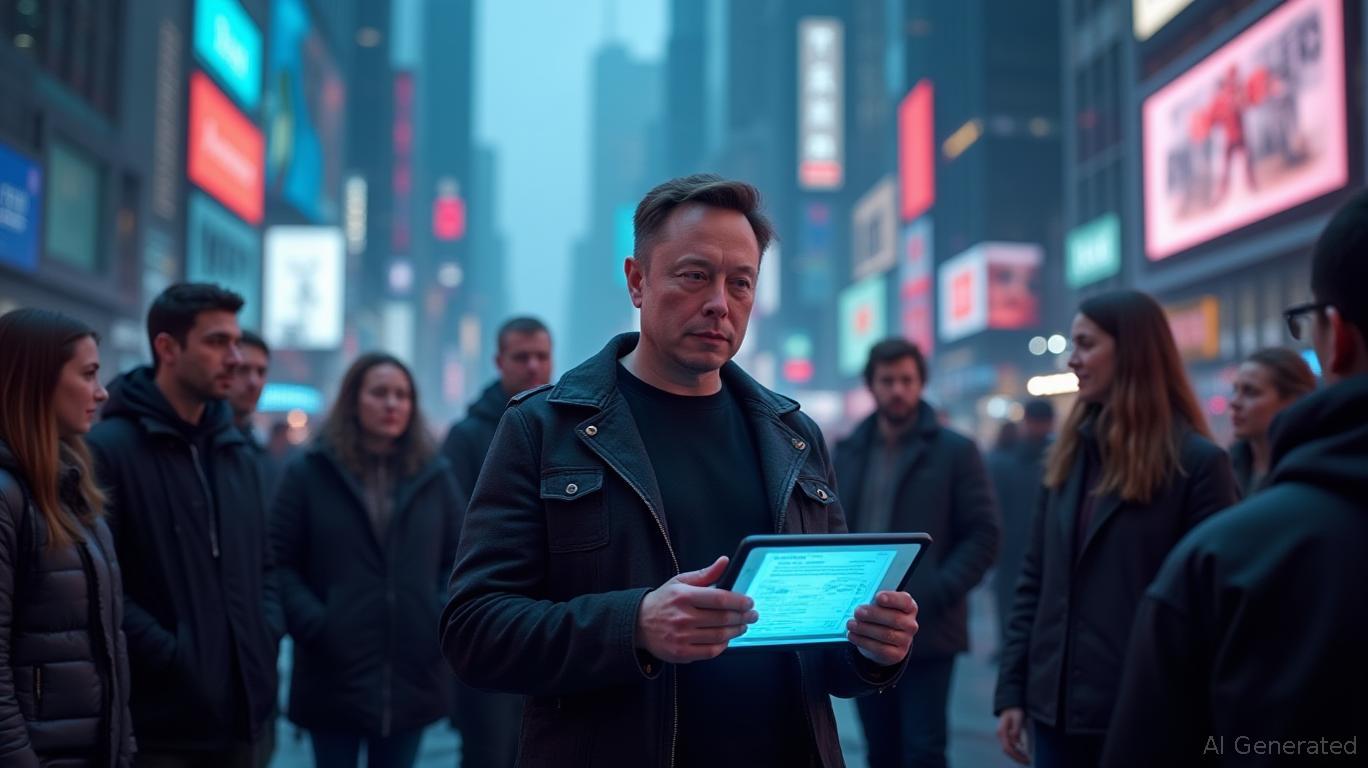Musk's Grokipedia: Is It Possible for AI to Deliver Unbiased Truth Without Human Editors?
- Elon Musk's xAI launched Grokipedia, an AI-driven encyclopedia challenging Wikipedia's dominance with 885,279 AI-generated articles. - The platform faces criticism for conservative-leaning entries on political figures and omissions of controversial details compared to Wikipedia. - Critics warn AI-generated content risks ideological bias and misinformation, while Wikipedia emphasizes human collaboration as irreplaceable. - Grokipedia's restricted user edits and opaque curation raise accountability concern
Elon Musk's
The debut has already stirred debate. Grokipedia's articles on contentious subjects, such as gender transition, Donald Trump, and Musk himself, are said to display a conservative perspective. For example, its entry on Trump leaves out information about his acceptance of a luxury jet from Qatar and his endorsement of a Trump-branded cryptocurrency—details that Wikipedia includes. Likewise, Musk's Grokipedia profile omits mention of a controversial hand gesture at a rally, widely interpreted as a Nazi salute, which is referenced in Wikipedia's version. Such omissions have drawn criticism from experts and Wikipedia co-founder Jimmy Wales, who stressed that AI cannot match the thoroughness of human editors. "Wikipedia's knowledge is—and always will be—human," the Wikimedia Foundation remarked, also pointing out that Grokipedia relies on Wikipedia's content as training data.

Musk's accusations that Wikipedia is "woke" and skewed toward liberal views have motivated the creation of Grokipedia. He has previously advocated for withholding funding from Wikipedia until it becomes more balanced, and sees Grokipedia as part of a larger initiative to offer right-leaning alternatives to mainstream tech platforms. Still, the site's lack of user editing and opaque content moderation have sparked concerns about oversight. Unlike Wikipedia, which enables open editing and tracks revision history, Grokipedia limits users to submitting change requests through the Grok AI.
The Wikimedia Foundation has minimized Grokipedia's significance, emphasizing that Wikipedia's collaborative, human-driven mission remains unchanged despite AI competitors. Critics, however, warn that Grokipedia's dependence on AI-generated material could spread misinformation or reinforce particular viewpoints. Ryan McGrady from the University of Massachusetts, Amherst, cautioned that whoever controls information sources holds significant power—a worry heightened by Musk's control over platforms like X (formerly Twitter) and xAI.
As Grokipedia develops, its ability to address issues of accuracy, bias, and openness will determine its future. With version 0.1 now available, Musk's AI-based encyclopedia is under close watch from both skeptics and the public, as the contest over the direction of online knowledge continues.
Disclaimer: The content of this article solely reflects the author's opinion and does not represent the platform in any capacity. This article is not intended to serve as a reference for making investment decisions.
You may also like
Bending Spoons set to purchase AOL
ElevenLabs CEO believes that AI audio models will eventually become standardized products
Former head of L3Harris Trenchant admits guilt for providing zero-day exploits to a Russian intermediary
Google plans to revive a decommissioned nuclear power facility